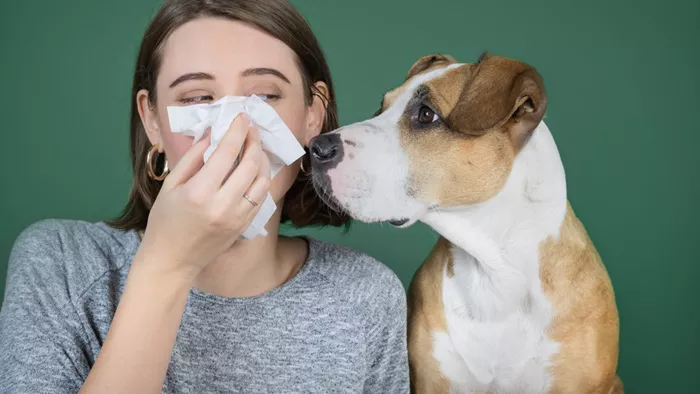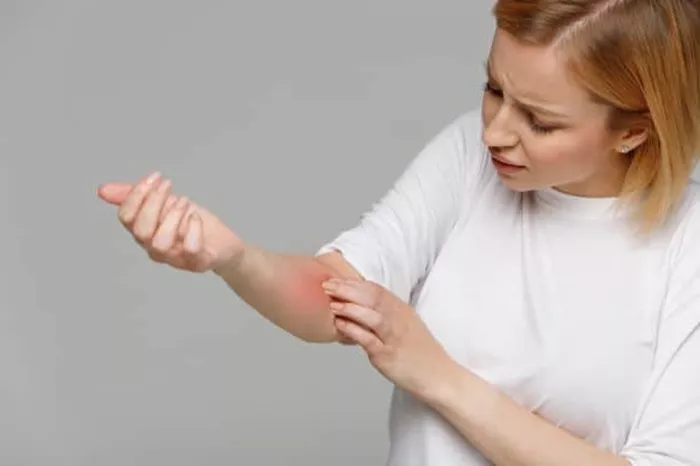Dog allergies are a common issue affecting many individuals worldwide. For those who love dogs but suffer from allergies, the question of whether these allergies can be outgrown or managed is of significant importance. This article delves into the nature of dog allergies, explores current scientific understanding, and provides practical advice for managing symptoms.
What Are Dog Allergies?
Dog allergies occur when the immune system overreacts to proteins found in a dog’s skin cells, urine, or saliva. These proteins, called allergens, trigger allergic reactions in susceptible individuals. The primary allergens associated with dogs are proteins found in their dander (tiny flakes of skin), urine, and saliva.
Causes of Dog Allergies
1. Dander: The most common allergen, dander consists of tiny skin flakes that can be airborne and settle on surfaces. It can be particularly problematic because it is so small that it can remain suspended in the air for long periods.
2. Saliva and Urine: When dogs lick themselves, allergens in their saliva can transfer to their fur. Additionally, allergens in urine can become airborne and contribute to allergic reactions.
3. Breed-Specific Allergens: Some breeds produce fewer allergens than others, but no breed is completely hypoallergenic.
Symptoms of Dog Allergies
Dog allergy symptoms can range from mild to severe and include:
- Sneezing
- Runny or stuffy nose
- Itchy or watery eyes
- Skin rashes or hives
- Coughing or wheezing
- Shortness of breath
In severe cases, exposure to dog allergens can trigger asthma attacks or exacerbate existing asthma symptoms.
Can Allergies to Dogs Go Away?
Natural History of Allergies
The persistence of allergies can vary widely among individuals. Some people might experience a reduction in symptoms over time, while others may find their allergies persist or even worsen. Here are some key factors influencing whether dog allergies might diminish:
1. Age: Allergies often start in childhood, but their course can vary. Some children may outgrow their allergies, while others may continue to experience symptoms into adulthood.
2. Immune System Changes: The immune system can change over time, potentially altering allergic responses. Some people might develop tolerance to certain allergens, leading to reduced symptoms.
3. Exposure Levels: Regular and prolonged exposure to allergens might lead to a decreased sensitivity over time, though this is not guaranteed.
See Also: Can Allergic Rhinitis Go Away on Its Own?
Current Scientific Understanding
Tolerance Development
There is evidence suggesting that some individuals may develop tolerance to allergens over time. This process is known as “immune tolerance,” where the immune system becomes less responsive to specific allergens. Research indicates that gradual, controlled exposure to allergens might help in building tolerance, though this approach requires careful management and is not universally effective.
Immunotherapy
Allergy immunotherapy, also known as allergy shots, is a treatment designed to reduce sensitivity to allergens. This approach involves administering gradually increasing doses of allergens to desensitize the immune system. For dog allergies, immunotherapy has shown promising results in reducing symptoms and might lead to long-term improvement.
Genetic Factors
Genetics play a significant role in the development of allergies. Individuals with a family history of allergies are more likely to develop them. However, genetic predisposition does not always predict the persistence of allergies, and some people might experience a decrease in symptoms despite a genetic tendency.
Managing Dog Allergies
Lifestyle and Environmental Adjustments
While waiting to see if allergies improve, managing symptoms effectively is crucial. Here are some strategies:
1. Create an Allergy-Friendly Home: Regular cleaning and using high-efficiency particulate air (HEPA) filters can help reduce allergens in the home. Vacuuming with a HEPA-filtered vacuum and using washable covers on furniture can also be beneficial.
2. Designate Dog-Free Zones: Keeping dogs out of certain areas, such as bedrooms, can help limit exposure to allergens.
3. Bathing and Grooming: Regular bathing and grooming of dogs can reduce the amount of dander and saliva that contributes to allergies. Using a pet-friendly shampoo and brushing dogs frequently can help manage allergens.
4. Personal Hygiene: Washing hands after handling dogs and changing clothes can help minimize allergen transfer.
Medical Treatments
1. Antihistamines: Over-the-counter antihistamines can help relieve symptoms like sneezing and itching.
2. Decongestants: These medications can reduce nasal congestion associated with allergies.
3. Nasal Corticosteroids: Prescription nasal sprays can help reduce inflammation and allergic reactions in the nasal passages.
4. Allergy Shots (Immunotherapy): For long-term relief, allergy shots might be a viable option. Consult with an allergist to explore this treatment.
Conclusion
Dog allergies can be a challenging issue, but understanding their nature and exploring management options can help alleviate symptoms. While some individuals may outgrow their allergies or develop tolerance over time, others may require ongoing management strategies. Advances in medical treatments, such as immunotherapy, offer hope for long-term relief. By combining environmental adjustments with medical treatments, individuals with dog allergies can improve their quality of life and enjoy the companionship of their furry friends. For those considering adopting a dog or currently living with one, understanding and managing allergies effectively can ensure a harmonious and healthy relationship between pets and their owners.
[inline_related_posts title=”You Might Be Interested In” title_align=”left” style=”list” number=”6″ align=”none” ids=”6838,11339,11249″ by=”categories” orderby=”rand” order=”DESC” hide_thumb=”no” thumb_right=”no” views=”no” date=”yes” grid_columns=”2″ post_type=”” tax=””]

































